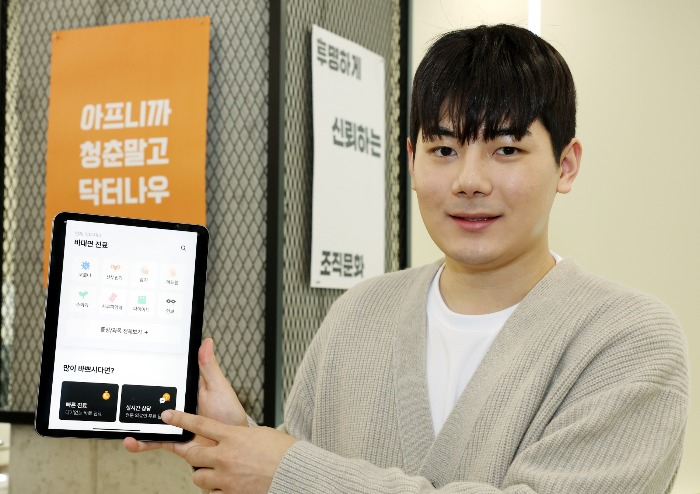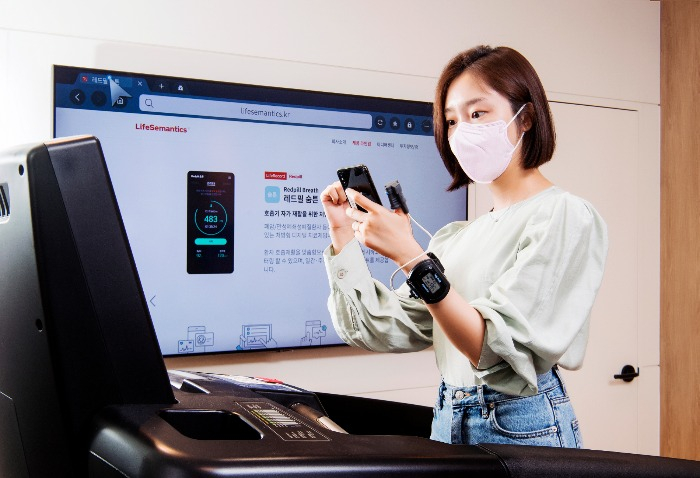Korean startups
KoreaŌĆÖs telemedicine startups seek growth abroad
Half of the country's 29 domestic telemedicine platforms shut down in 2023
By Feb 07, 2024 (Gmt+09:00)
2
Min read
Most Read
S.Korea's LS Materials set to boost earnings ahead of IPO process


NPS to commit $1.1 billion to external managers in 2024


Samsung shifts to emergency mode with 6-day work week for executives


Samsung Heavy Industries succeeds autonomous vessel navigation


Korean battery maker SK On expects business turnaround in H2



South KoreaŌĆÖs telemedicine startups are seeking growth opportunities abroad in the face of regulations such as drug delivery restrictions that hinder their operations at home.
SoftBank backed-Doctornow, South KoreaŌĆÖs No. 1 telemedicine platform, said on Tuesday it would establish a subsidiary in Japan and launch non-contact medical services there, including medicine delivery. Its founder Jang Jiho will oversee the Japanese unit.
Telemedicine platforms provide remote diagnostics in partnership with hospitals and pharmacies.
ŌĆ£Japan is an attractive market with well-established telemedicine infrastructure such as broad networks with medical institutions and pharmacy chains,ŌĆØ Jang said.
Big tech companies such as Line Healthcare and Amazon Health have already launched online medical services in Japan.
Medihere Co., a South Korean telemedicine platform operator, is preparing to relocate its headquarters to the US. It has already opened a primary care clinic DoctorHere in the US, which also offers contact-free medical services.
It got off to a smooth start in the US by offering an unlimited subscription service for $119 a month.

Korea-based online healthcare company Life Semantics Corp. is slated to sign a definitive agreement with Praram 9 Hospital in Bangkok, Thailand next month to open its telemedicine platform, Dr. Call Thai.
ŌĆ£ThailandŌĆÖs non-face-to-face medical treatment market has grown steadily to reach 120 billion won ($90 million),ŌĆØ said Ahn Si-hoon, head of Life SemanticsŌĆÖ Solution Experience division.
Lulu Medic introduced a contact-free medical service platform for Korean residents in Vietnam in 2022 and has since expanded its presence through the acquisition of Assist Card Korea, which offers travel insurance products and ambulance transportation.
Vietnam allows almost all telemedicine services, including medicine delivery.

Telemedicine platforms were introduced in South Korea in the wake of the COVID-19 pandemic. After the end of the pandemic, however, they have been banned from providing online services for users' first-time examinations since June of last year.
The number of non-contact medical platform users in South Korea dropped to 153,339 cases in June and July last year, from 222,404 per month on average during the pandemic period.
ŌĆ£Even if you receive non-face-to-face treatment, you still have to go to the pharmacy to buy the medicine. It remains a barrier for us,ŌĆØ said Seon Jae-won, chief executive of Meraki Place and co-chairman of the Telemedicine Industry Association.
A partial relaxation in the regulations gave them some breathing room, but medicine delivery bans still hamstring their domestic operations.
As half of the 29 domestic telemedicine platforms shut down last year, Doctornow is receiving voluntary retirement applications to cut 50% of its workforce.
Write to Eun-Yi Ko at koko@hankyung.com
┬Ā
Yeonhee Kim edited this article.
More to Read
-
 Bio & PharmaDoctornow signs business agreement with SpainŌĆÖs Mediktor
Bio & PharmaDoctornow signs business agreement with SpainŌĆÖs MediktorNov 08, 2023 (Gmt+09:00)
1 Min read
Comment 0
LOG IN


